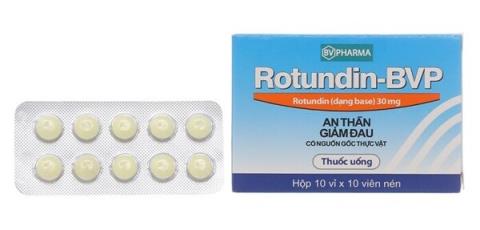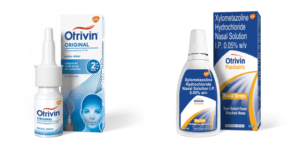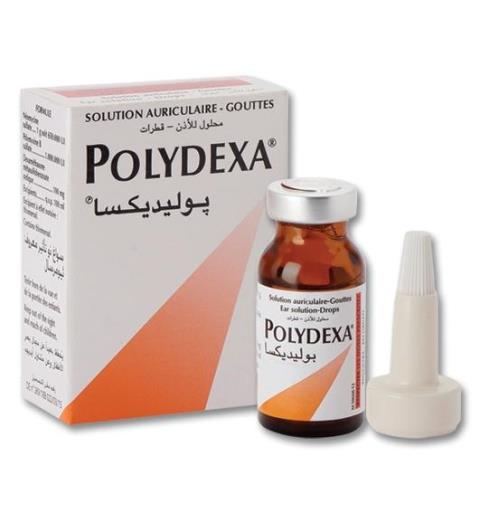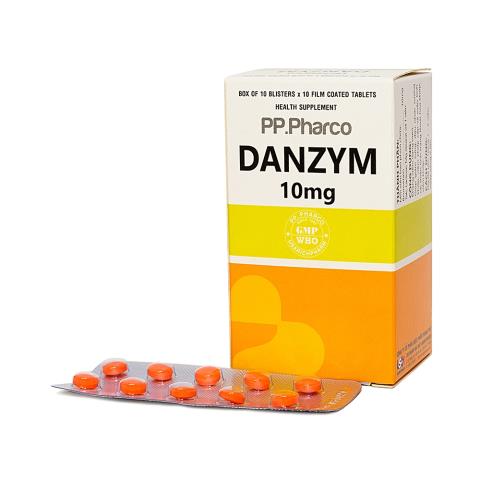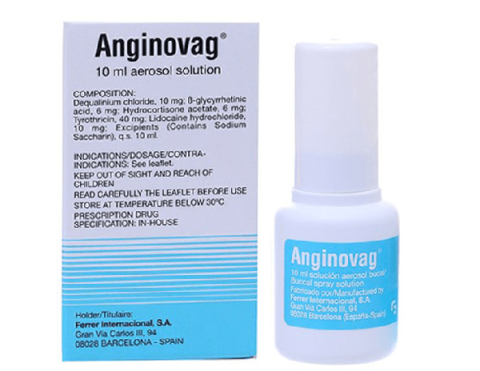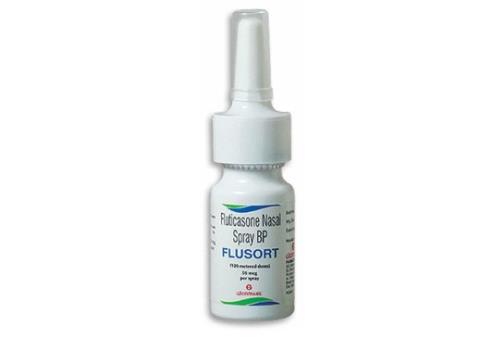Otrivin® (xylometazoline) how to use and points to note. Let's find out through the following article of pharmacist Trinh Anh Thoa.
Active ingredient name : xylometazoline
Drugs with similar ingredients : Antazol, Xylomet, Klarigen, Nasolin
content
1. In what forms is Otrivin® (xylometazoline) used?
Otrivin® (xylometazoline) is available in the following forms:
- Otrivin® 0.1% nasal spray.
- Otrivin® nasal drops are available in 2 types with different strengths: 0.1% for adults and 0.05% for children.
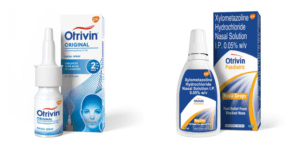
Otrivin nasal drops
2. What disease is Otrivin® (xylometazoline) used for?
The main active ingredient of Otrivin® is xylometazoline. This active ingredient helps to constrict the large veins in the nose that swell during rhinitis. Therefore, Otrivin® is indicated to relieve symptoms in the following cases:
3. How to use Otrivin (xylometazoline)?
Otrivin® drug has forms of use and dosage for each form is guided as follows:
Otrivin 0.1% nasal spray:
- Children over 12 years old, adults and the elderly: 1 spray in each nostril x 1-3 times/day.
- Do not use for more than 7 days without medical advice.
Otrivin 0.1% nasal solution for adults:
- Children over 12 years old, adults and the elderly: 2-3 drops in each nostril x 2-3 times/day.
- Do not use for more than 7 days without medical advice.
Ovitrin 0.05% nasal drops for children:
- Children from 6 to 12 years old (all indications): 1-2 drops in each nostril x 1-2 times/day.
- Do not use for more than 5 days without medical advice.
4. In which case should not be used or should be used with caution?
In case of not using Otrivin
- Hypersensitivity to xylometazoline.
- The patient had undergone a vasectomy or an epidural surgery.
Cases needing caution when using Otrivin
- Otrivin should be used with caution in patients who have a strong reaction to sympathomimetic drugs through signs of insomnia , dizziness, etc.
- Use with caution in people with hypertension , cardiovascular disease, hyperthyroidism, narrow-angle glaucoma or diabetes.
5. Note when using Otrivin (xylometazoline)
- Do not exceed the prescribed dose.
- Do not use continuously for more than seven consecutive days. If symptoms persist, consult your doctor.
- If you are pregnant or taking other medications or under the care of a doctor, consult your doctor before using Otrivin®.
- Not for use on infants or children under 12 years old
- Do not share medicines with others to prevent cross infection.
- Use within 28 days of first opening the cap.
- To medicines out of reach of children.
- Do not use if you are sensitive to any of the ingredients of Otrivin®.
- Do not use if you have had recent neurosurgery.
- Consult your doctor before using Otrivin® if you have heart or circulatory disease.
- Some patients with sensitive nasal passages may experience some local discomfort when applying the product.
6. Possible side effects
Some common side effects that may be experienced include:
- Burning sensation in the nose and throat, local irritation, dryness of the nasal mucosa.
- Nausea , headache.
- Cardiovascular side effects have occurred, pay attention when using Otrivin® in patients with cardiovascular disease.
Some less common side effects:
- Systemic allergic reactions.
- Transient visual disturbances.
Other side effects such as palpitations, nausea and headache are very rare.
7. Some notes for pregnant and lactating women
Several animal studies have shown no adverse effects on pregnancy. But given the potential for systemic vasoconstrictor effects, the use of Otrivin® should be limited or consulted with your doctor during pregnancy.
There is no evidence of any adverse effects on breastfed infants. However, there is not enough information about whether xylometazoline (Otrivin®) passes into breast milk. Therefore, pregnant and lactating women should consult a doctor before taking the drug.
8. Drug interactions
As with all sympathomimetics, Otrivin® (xylometazoline) should not be used concomitantly with monoamine oxidase inhibitors, tricyclic or tetracyclic antidepressants, especially in case of overdose because of the potential for increased systemic effects of xylometazoline.
Therefore, you need to consult your doctor/pharmacist if you are taking many other medicines at the same time.
9. How to store medicine
- Do not store in a place where the temperature is above 30 degrees Celsius
- Store the spray bottle tightly closed and in the package to protect the medicine from environmental moisture.
- Keep out of reach of CHILDREN.
Otrivin® is a nasal spray or drop that contains the active ingredient xylometazoline. The drug helps relieve symptoms of nasal congestion in nasal diseases. Besides Otrivin®, there are other brand names that contain active ingredients with similar effects. However, the use of the drug should be taken after consulting a doctor, pharmacist. If you have symptoms of a nose disease, go to an ear-nose-throat specialist to get the most appropriate advice.
See more articles about Ear - Nose - Throat:
Allergic rhinitis: Causes, complications, prevention and treatment
Distinguishing allergic rhinitis, common rhinitis, rhinosinusitis
